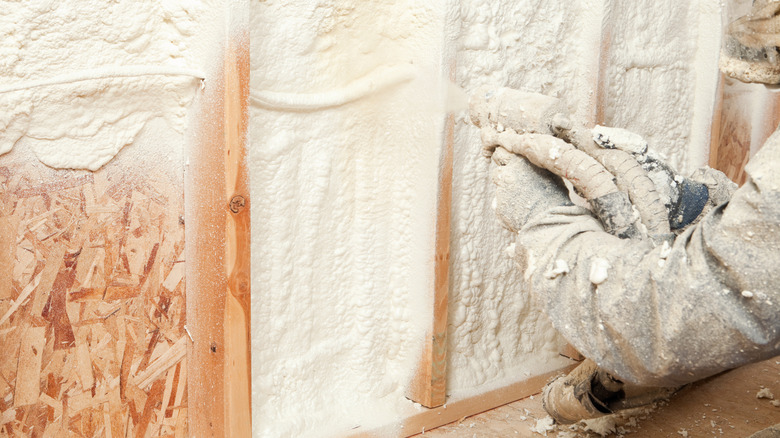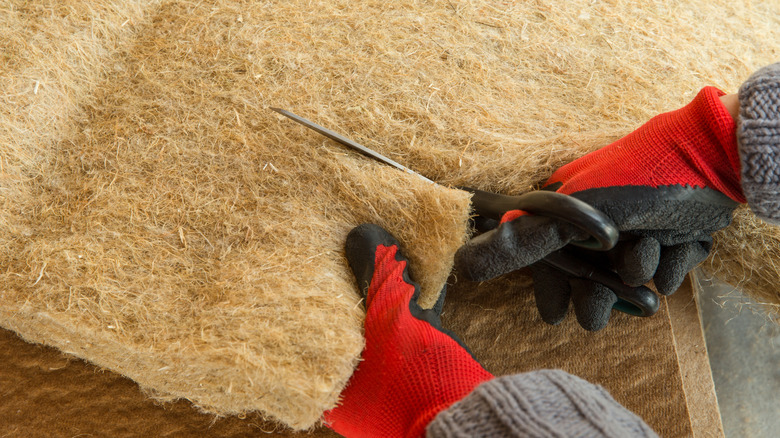The Natural Alternative To Expanding Foam People Love (And When To Use It)
Expanding foam (often called spray foam) has long been a popular insulation choice. It can help keep your house warm in the winter and cool in the summer while also cutting your energy bills. What's not to like? Well, actually, spray foam often contains toxic chemicals that are released into the air as it cures. There's also the environmental impact. Some argue that it requires more energy to make than it actually saves, thus increasing ozone-depleting carbon dioxide emissions rather than reducing them. If you're ready to ditch expanding foam insulation and try an eco-friendly alternative instead, hemp could be just what you're looking for.
You probably know of hemp as one of the sustainable fabrics that have become a go-to for interior design, but it is also increasingly used as a building material. For example, hempcrete blocks can be used in place of cinder blocks in non load-bearing walls. It is grown sustainably in the US, contains no harmful VOCs (volatile organic compounds), is non-toxic, and also hypoallergenic. So it's no surprise that people love this natural alternative, but when can you use it, and are there any downsides?
It's way better for the environment, but how efficient is it?
There are some compelling reasons to think twice about using DIY spray foam insulation kits, but when it's installed professionally, expanded foam is extremely efficient. It's very good at filling gaps and stopping drafts. Hemp isn't as good, but it's still possible to exceed the level required for even the coldest parts of the US.
Hemp usually comes as rolls or batts (panels), much like fiberglass insulation, and you can use it in the same way in walls, for lofts, etc. In fact, because it's breathable, it's a great way to avoid moisture-prone insulation during a basement remodel. It is resistant to mold and mildew. Hemp can also be fitted as exterior insulation before siding is attached. It is easy to cut and fit, and you can use hemp fiber to fill gaps around door and window frames. The cost of hemp insulation is on a par with expanded spray foam. It is extremely durable and so tough that mice and other pests usually avoid it.
So, now for the elephant in the room. For those who don't know, hemp's scientific name is Cannabis sativa. It comes from the same family as marijuana and theoretically has similar properties. There's an important difference. The psychoactive ingredient (what gives the high) is called tetrahydrocannabinol (THC). In some strains of marijuana, this can reach 30%. In hemp, it's a mere 0.3% or less. That's way too little to have any effect, even if you smoked enough insulation for an entire house.

